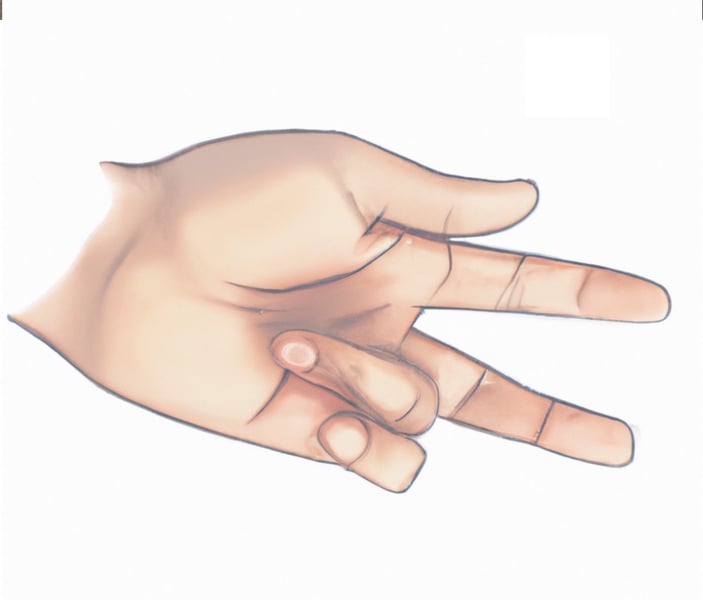Submit your contact info here or click the "Contact me about Sync" button below and we will reach out to you with more information.
Get Healthy!

- Dennis Thompson
- Posted June 14, 2023
Disease That Permanently Bends Fingers Could Have Origins in Neanderthal Genes
The so-called "Viking disease"causes the fingers of many aging northern European men to lock up in a bent position, and researchers now think they know why.
Genetic variants inherited from Neanderthal man appear to be the most powerful risk factors for developing Dupuytren's contracture -- called the Viking disease because it mainly affects men descended from northern Europeans.
Up to 30% of men in northern Europe older than 60 suffer from the Viking disease, which usually begins as a lump in the palm of the hand. As the lump grows, it causes one or more fingers to lock in a bent position.
The researchers analyzed data from more than 7,000 people affected by the disease, in hopes of finding a genetic cause.
Results showed that the three strongest risk factors for Viking disease are genetic, and are handed down from Neanderthal ancestors.
Neanderthals lived in Europe and western Asia until about 40,000 years ago, when they were replaced by modern humans, researchers said.
But before Neanderthals disappeared, they mixed with modern humans. As a result, from 1% to 2% of the genomes of people with roots outside of Africa come from Neanderthals.
"Since Dupuytren's contracture is rarely seen in individuals of African descent, we wondered whether gene variants from Neanderthals can partly explain why people outside of Africa are affected,"said lead researcher Hugo Zeberg, an assistant professor in the department of physiology and pharmacology at the Karolinska Institute in Sweden.
The researchers analyzed data from three large clinical groups in the United States, United Kingdom and Finland, which allowed them to compare the genomes of nearly 7,900 sufferers against those of almost 646,000 healthy controls.
The research group identified 61 genetic risk factors for Dupuytren's contracture, including three inherited from Neanderthals. Of those three Neanderthal genetic variants, two were the second and third most important risk factors.
The study is further evidence that the intermingling of Neanderthals and our ancestors continues to influence our health, particularly among certain groups, researchers said.
"This is a case where the meeting with Neanderthals has affected who suffers from illness, although we should not exaggerate the connection between Neanderthals and Vikings,"Zeberg said in an institute news release.
The new study appears in the journal Molecular Biology and Evolution.
More information
The Mayo Clinic has more about Dupuytren's contracture.
SOURCE: Karolinska Institute, news release, June 14, 2023







